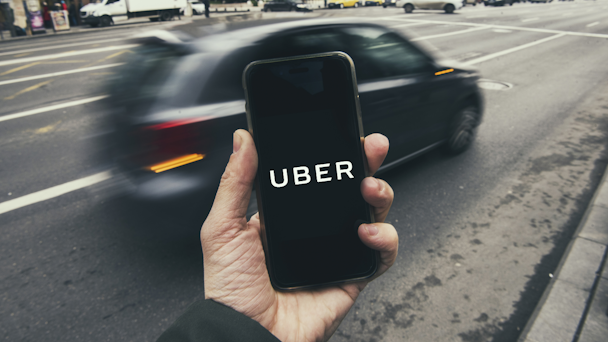
Advertisement

How does Uber survive its PR problems? / Adobe Stock
Last week, Uber faced another PR disaster after leaked files revealed the company had duped police, bribed governments and flouted the law. The ‘Uber Files’ is just one story in a string of scandals, all of which should have left the brand in tatters – and yet Uber is not only surviving, but thriving.
The leak by one of Uber’s chief lobbyists, Mark MacGann, contained shocking revelations, but it was just the latest in a string of PR problems that have hit the company. From as early as 2014, it has battled negative headlines over everything from the tactics used to compete with rivals, claims of spying and fines for false advertising.
YouGov data shows that, for the past six years, consumers have heard negative stories about the brand for all but 10 days and its brand reputation scores have been entirely negative in that time. Its brand reputation score hit a low of -23.4 in 2018 following its worst year of controversies.
And yet, Uber keeps coming out unscathed. Brand consideration has been on an upward trajectory going from a score of 4.9 in 2016 to 18.6 in 2022, according to YouGov data. Satisfaction with the app has also grown seven points in the past six years, while customers’ willingness to use Uber has grown by three points.
“Customer satisfaction breeds forgiveness and lowers the likelihood of brand-switching,” says Michela Graci, the strategy partner at Coley Porter Bell who has worked on brand projects for the likes of Tesco, BBC and Samsung. People are loyal to brands they “recognize and are satisfied with, sometimes despite their faults,” she says.
The YouGov data showed that, for all its negative PR, customers are still getting a positive experience when using the app, which so far is proving enough to outweigh the scandals. In fact, customers are also even more likely to recommend Uber now than in 2016, jumping seven points in YouGov’s polling.
“They say that if your product is faulty, then no matter how good your marketing is, sooner or later your efforts are going to fail,” says brand expert Dionysis Livanis, creative director at Redhouse. ”With Uber, it’s the other way round. Bad publicity, bad marketing choices, bad brand behavior… still it has an excellent product.”
According to Livanis, Uber is convenient, cheap, effective and makes you “feel you are in control” – all aspects of a product that consumers value. “This is why Uber is very resilient to PR disasters,” he says. “As soon as it starts failing consumers on these values, its reputation will fall too.”
Uber invented the taxi app category and paved the way for competitors including Bolt, Kapten and Lyft in the US. While the newer entrants have made some market gains, Uber was still miles ahead with 76% of the market share in the UK in 2021, followed by Bolt with 20%.
“Until there is a better alternative – something as convenient yet with some ethics – people will stick with Uber,” says Emma Harris, chief executive officer at brand agency Glow London. Harris says the newcomers have “failed to deliver an experience or brand purpose that set them apart from the original pioneer”.
Uber will always benefit from its “first-to-market badge” that has gifted it high levels of brand salience, she says. To “dethrone Uber”, the market needs a brand that can “differentiate its in-app and in-car experience or provide some tangible ethical benefit, while maintaining greater levels of convenience and cheapness,” adds Harris. Until then, users will keep loyal to Uber – “even if this soiree into lobbying is icky”.
Graci concludes: “Much of the world considers Uber an ‘essential’, so if it continues to focus on offering a great service that satisfies its customers, they may well choose not to invest their own time to search for an alternative ride provider even in light of negative press.”